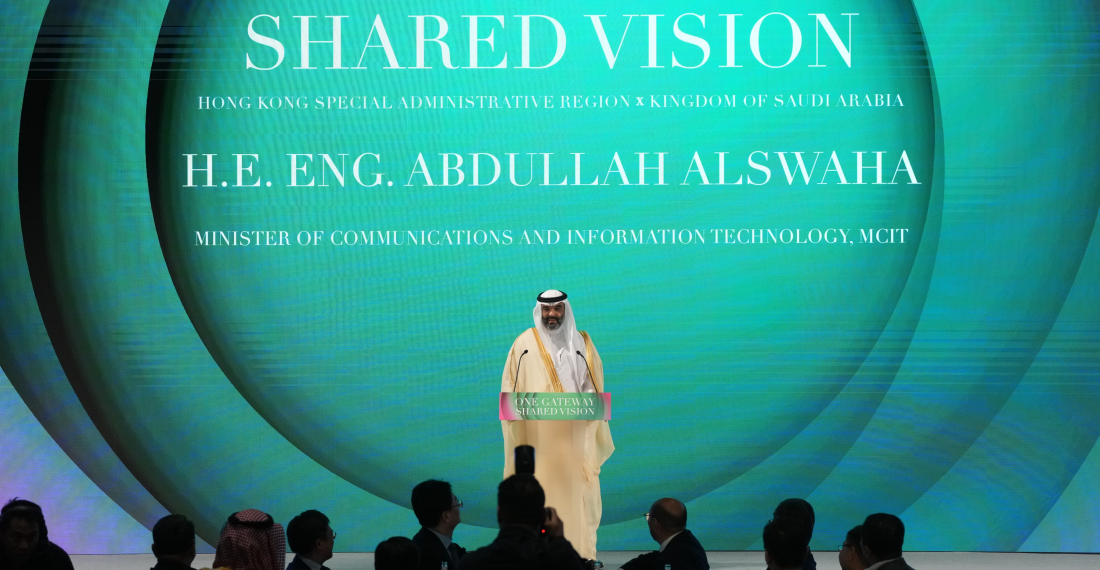Saudi Arabia is keen to strengthen its partnernships with Hong Kong and mainland China, the Saudi communications and IT minister Abdullah Al-Swaha said on Sunday (2 July).
Speaking at the "One Gateway Shared Vision — Hong Kong x Saudi Arabia" event in Hong Kong, Abdullah Al-Swaha said closer collaboration would help boost the Kingdom’s Vision 2030 reform agenda, a strategic framework to reduce Saudi Arabia's dependence on oil and diversify its economy, and develop public service sectors such as healthcare, tourism, education, infrastructure and recreation.
"Hong Kong and Saudi Arabia are going through very promising transformations, where both economies are financial hubs in their own regions. We have an opportunity to build an innovation bridge, to leapfrog into the future with an innovation-based economy," he said.
A "pro-partnership and pro-openness" Saudi Arabia was willing to do business with "any partner that can comply with our security and regulatory requirements," he said.
Saudi authorities would look to work closely with Hong Kong across a range of sectors, including health sciences and biotechnology, environmental, cloud computing, artificial intelligence and smart cities, he said.
Al-Swaha's visit to Hong Kong the Arab-China Business Conference held in Riyadh last month, at which Saudi Investment Minister Khalid Al-Falih said the Kingdom could serve as China’s gateway to the Arab world.







